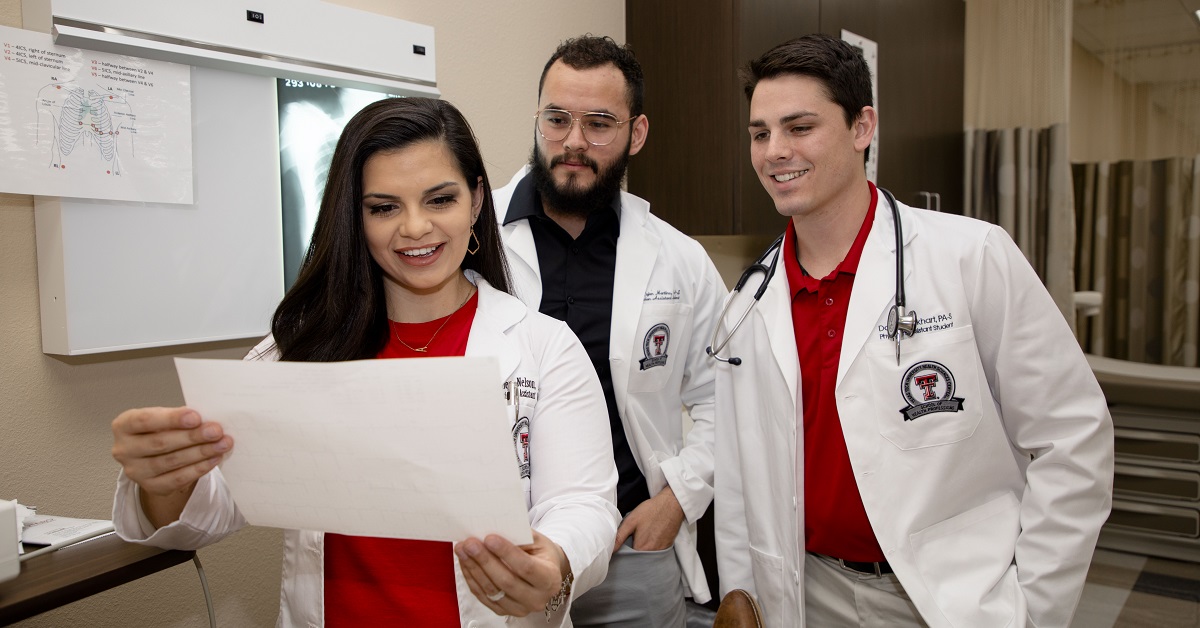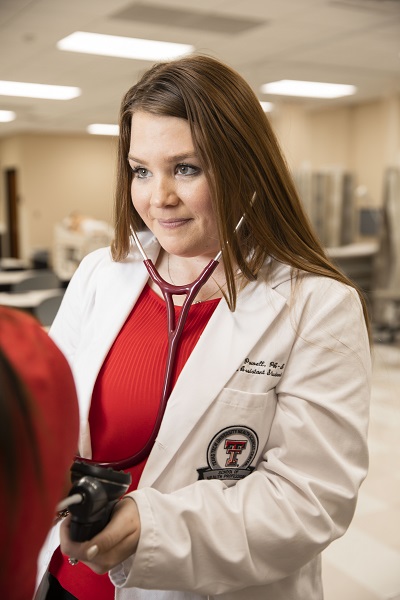How Physician Assistants Play a Role in Mental Health

Physician Assistants (PAs) are members of one of the fastest-growing and most rewarding healthcare fields today. PAs are highly qualified health professionals who are trained to provide care to patients in a variety of medical settings. PAs are certified and licensed to practice medicine as part of a healthcare team. They gather and evaluate medical data and participate in clinical decision making, diagnosis and therapeutic management, and they provide preventative care and education.
We sat down with Sarah Stringer, assistant professor in the School of Health Professions Physician Assistant Program, to learn more about the integral role that PAs play in mental health and other healthcare fields.
A Career as a Physician Assistant: Versatile and Exciting

The variety of specialties can feel overwhelming for a student entering the healthcare field. Stringer points out that choosing to become a PA allows you to experience a wide array of specialties.
“We’re trained as generalists, meaning we don’t have to necessarily choose one specialty,” she says. “At any point in our careers, we can switch.”
For instance, a PA could move from internal medicine to psychiatry.
“You’re fully equipped and trained to switch specialties, and you don’t have to go back and get additional schooling,” Stringer points out.
PAs are licensed to practice medicine under the supervision of a supervising physician. They can treat patients in any medical setting.
“This includes ordering diagnostics, developing a diagnosis, creating a treatment plan and writing prescriptions,” says Stringer.
Unlike Nurse Practitioners, Physician Assistants are trained under a model similar to physicians. While Nurse Practitioners have similar training, they must choose a specialty, which focuses their education and locks them into one career path.
PAs enjoy flexibility and versatility.
“You’re so young when you’re choosing your field of study and are trying to figure out what you want to do for the rest of your life,” Stringer points out. “I love what I do.”
Physician Assistants and Mental Health Care

Stringer is quick to point out a misconception that Physician Assistants don’t practice psychiatry. “PAs are absolutely equipped,” she says. “PAs can work in the full scope of psychiatric healthcare facilities.”
These include private health clinics and hospitals, some of which are providing psychiatric emergency rooms. PAs can also provide services via telehealth, which has become so vital in the last two years.
“PAs can truly work in any setting,” she says.
PAs: Improving Access to Healthcare
Physician Assistants help to increase the accessibility of care for patients in underserved or remote communities. Stringer notes that West Texas is especially underserved for psychiatric services.
“Physician Assistants can increase access to care for underserved communities by increasing the number of competent providers available to care for patients suffering from mental illness,” she says.
Stringer encourages students to consider a rewarding and exciting career as a Physician Assistant.
Related Stories
Celebrating Veterans: TTUHSC’s General Martin Clay’s Legacy of Service and Leadership
From his initial enlistment in the Army National Guard 36 years ago to his leadership in military and civilian health care management roles, Major General Martin Clay’s career has been shaped by adaptability, mission focus and service to others.
Texas Tech University Health Sciences Center School of Nursing Named Best Accelerated Bachelor of Science in Nursing Program in Texas
The TTUHSC School of Nursing Accelerated Bachelor of Science in Nursing (BSN) program has been ranked the No. 1 accelerated nursing program in Texas by RegisteredNursing.org.
TTUHSC Names New Regional Dean for the School of Nursing
Louise Rice, DNP, RN, has been named regional dean of the TTUHSC School of Nursing on the Amarillo campus.
Recent Stories
National Academy of Inventors Names TTUHSC Faculty Senior Members
The National Academy of Inventors (NAI) has designated two current and one former TTUHSC faculty researchers as Senior Members.
The John Wayne Cancer Foundation Surgical Oncology Fellowship Program at Texas Tech University Health Sciences Center Announced
TTUHSC is collaborating with the John Wayne Cancer Foundation and has established the Big Cure Endowment, which supports the university’s efforts to reduce cancer incidence and increase survivability of people in rural and underserved areas.
TTUHSC Receives $1 Million Gift from Amarillo National Bank to Expand and Enhance Pediatric Care in the Panhandle
TTUHSC School of Medicine leaders accepted a $1 million philanthropic gift from Amarillo National Bank on Tuesday (Feb. 10), marking a transformational investment in pediatric care for the Texas Panhandle.
